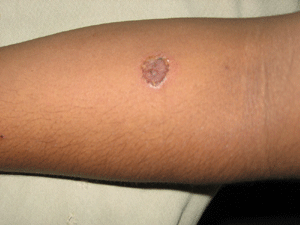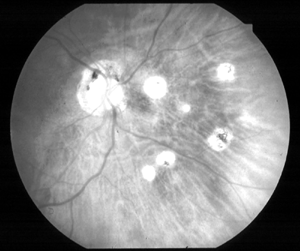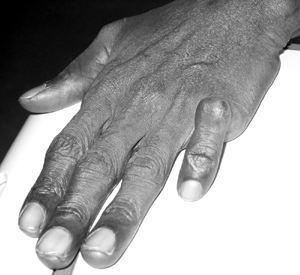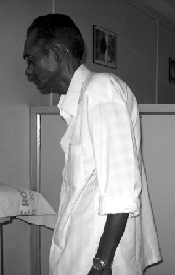Diseases of Uveal Tract
Eyeball has 3 layers in which the outer layer is called sclera, the middle layer is called as uvea and the innermost layer is called retina. The function of uvea is to nourish all the layers of eyeball.
Uvea consists of three structures
Iris, ciliary body, choroid
What is uveitis?
Uveitis is an allergic disease that affects middle layer of the eye which could be iris, ciliarybody or choroid.
The Types of uveitis
There are four types of uveitis
- Anterior uveitis – affected part is near the front part of the eye
- Intermediate uveitis – affected part is in the middle of the eye
- Posterior uveitis – affected part is in the back part of the eye
- Pan uveitis – when it affects all 3 layers it is called pan uveitis
Causes & treatment of uveitis
What are the causes of uveitis?
Causes can be classified as
1. Infection
- Bacteria (TB, Leprosy)
- Virus (Herpes)
- Fungus (Histoplasmosis)
- Parasite (Toxoplasmosis)
2. Autoimmune
When body’s immune system wrongly recognises a part of it’s own body as foreign and starts attacking it.
3. Traumatic
When it follows some injury.
4. Idiopathic
when cause is not known.
Tuberculosis uveitis
Tuberculosis can affect any organ, of which eye is one of the important organs to get involved
- Tuberculosis bacteria can affect eyes in the form of uveitis which can be recurrent and can present with or without cough and fever.
- Raised ESR, Mantoux +ve, Chest X- ray shows systemic involvement of tuberculosis in addition to uveitis (Fig. 10.1).
- Usually treated with anti-tuberculosis drugs (ATT) or in combination of ATT and steroids.




Role of counsellor in tuberculosis uveitis
- Topical steroids and dilating drops should be used as advised
- Take the tablets regularly for 6 months
- Tell the patients to take tablets in empty stomach
- Since systemic involvement is there regular check up by physician and ophthalmologist is essential
- We should warn the patients about orange coloured urine because of drugs.
Leptospiral uveitis
Leptospirosis is also a bacterial infection that affects uvea. It is waterborne disease which spreads from animals to man through animal excreta. The bacteria enter humans through open wound in skin or mucosa (Fig. 10.2).


- This disease is seen in farmers working in fields without foot wear.
- Also by taking bath in ponds with contaminated water where there is close contact with cattle.
Role of counsellor in leptospirosis
Patient should be counselled on regular local and systemic treatment as advised by ophthalmologist
Counselling to the family members and community on prevention
- Patients should avoid bath in ponds which is contaminated by cattle excreta.
- Cattle should be kept away from the home.
- They should go to farms with foot wear.
- Home surroundings should be clean.
- They should boil the water before drinking.
Syphilitic uveitis
- Eye can be affected in syphilis, which is a sexually transmitted disease.
- This disease can cause damage to nerves of the eye in addition to uveal structures.
Treatment
- Response to steroids alone is poor, needs systemic penicillin treatment, intramuscular or intravenous
- Erythromycin can be given if patient is allergic to penicillin.
Role of counsellor
Since it is sexually transmitted disease counsellor should adapt complete confidentiality and should make all efforts to make the patient trust him or her.
She should emphasise the use of topical eye drops as advised by ophthalmologist.
Viral uveitis
- Mostly due to herpes simplex or herpes zoster viruses
- It affects uvea in addition to cornea and retina.
Treatment
- Topical steroids
- Cycloplegics
- Topical acyclovir, oral or intravenous acyclovir may be needed.
Role of the counsellor
In this condition, because of visual threat due to retinal involvement, counsellor should stress the importance of regular ophthalmic check up following an attack of viral uveitis.
AIDS and uveitis
This entity is becoming common and is a multi systemic disease.
Treatment
Team management by the ophthalmologist and venerologist or physician.
Role of the counsellor
Since it needs a long term treatment patient should be handled compassionately and confidentially.
Autoimmune uveitis
It is recurrent uveitis of shorter duration. Which frequently affects both eyes.
It includes Behcet’s disease, sympathetic ophthalmic and Vogt Koyanagi Haradas disease (Fig. 10.3).


Treatment
- High dose oral steroids
- Intravenous steroids
Role of counsellor
- Counsellor should make the patient aware of steroid complications like moon face and weight gain.
- Inform the patient that sudden withdrawal of steroid treatment will harm the patient. And counsel the patient that both systemic and topical steroids should be tapered gradually as advised.
Traumatic uveitis
- It is caused by blunt trauma to the eye.
- Pain and redness occurs immediately after the injury.
- Treatment is with topical steroids and cycloplegics as advised.
Role of counsellor
Late complications of blunt trauma can occur so patient should be counselled for regular follow up.
Uveitis associated with joint pains
- It is usually severe, recurrent and of short duration.
- Usually affects one eye at a time.
- 1st episode is most severe, subsequent ones are often milder.
- Patient may have low back pain & neck pain.
- It is seen in young adults.
- Treatment is with topical steroids.
Role of the counsellor
- Need for frequent use of eye drops should be stressed.
- Since it is recurrent follow up visits to be stressed.
Symptoms of Uveitis
Symptoms of anterior uveitis are
- Pain and redness of the eye
- Glare on seeing bright light
- Blurred vision
Symptoms of intermediate and posterior uveitis are
- Blurred vision
- Floaters
Investigations
What investigations do we need to diagnose the cause of uveitis?
They can be ordered as
Routine investigations
- Total blood count
- Differential blood count
- Erythrocyte sedimentation rate
- Mantoux test
- Chest X-ray
Specific investigations commonly done in uveitis
- Serum angiotensin converting enzyme (Sarcoidosis)
- Antinuclear antibodies (SLE)
- Rheumatoid factor (Rheumatoid arthritis)
- Veneral disease research laboratory test (Syphilis)
- Xray spine, CT, MRI (Ankylosing spondylitis)
- Fundus fluorescein angiography
- Ultrasonography
- Tissue biopsy
Role of counsellor in uvea diseases
Patient has to be informed that,
- Uveitis is a disease of long duration and can be recurrent.
- Steroids are main mode of treatment and side effects of steroid have to be clearly mentioned.
- When doctors advise immunosuppressant or steroids, counsellor must make sure that patient is not pregnant.
- Immunosuppressive drugs are very powerful and potent drugs. Dosage should be strictly followed. If patient has any questions, they should approach the doctor/ counsellors either directly or by phone.
- Follow up visits should be regular. Missing the treatment may lead to worsening of symptoms.
- Patient should be counselled regarding cataract and glaucoma due to long term use of steroids.
Frequently asked questions
1. What is the cause of pain in uveitis?
It is because of irritation of cilliary nerves that occurs in uveitis.
2. After using steroids I noticed sudden blurring of vision.
Long-term use of steroids can produce cataract or glaucoma so you should have regular follow up.
3. After using eye drops I am not able to read.
It is because of dilation of pupil due to the drugs and the effect is temporary.
4. What are the side effects of steroids?
There are some side effects, but they don’t always occur, many patients are taking these tablets daily and there are not many serious complaints. Some of the side effects are as follows:
Short term side effects
Pain in the abdomen, raised blood sugar, raised pressure in eyes, acne (pimples), weight gain.
Long term side effects
Cataract, glaucoma, muscle weakness, retarded growth in children, puffiness of face, weakness of the bones Sudden withdrawal may produce recurrence of original disease and we may have to start with higher dose of IV steroids. Hence, to be stopped only as per doctor’s advice.
5. I have got many pimples on my face after taking these tablets, what to do?
These are harmless and will resolve when we lower the dose or stop the treatment. No treatment is required for pimples.
6. I have become fat after using these tablets, what should I do?
Gain in body weight is a known side effect of steroids and it will return back once we stop treatment.
7. My blood sugar has increased after taking these steroid tablets; should I stop the treatment?
No, this is a common harmless problem and you should not stop the treatment but we will reduce the dose. You need not worry about it. You should check your blood sugar regularly.
8. My neighbor doctor told me that these immunosuppressive are for cancer, why I am using them? Do I have a cancer in eyes?
- These drugs are used for cancers also
- But because of excessive side effects of steroids we are using these drugs
- You don’t have any cancer in eyes or body
- The dose we use is much less than what is used for cancer
Key points to remember
- Uvea is the middle layer among the three layers of eye ball.
- Inflammation of uvea is called uveitis.
- Causes of uveitis can be infective or noninfective.
- Noninfective ueitis is treated with cycloplegics and topical steroids with or without oral steroids and immunosuppressant.
- Infection uveitis needs cyclyplegics, topical steroids and specific antibiotics.
- Counsellor should have an idea regarding causes of uveitis and the basic principles of treatment.
- Patient should be informed about the possible side effects of steroids and immunosuppressant.
Student exercise
Write short answer
- What is the role of counsellor in autoimmune uveitis?
- What are the side effects of oral and topical steroids to be explained to patient?
- What is the role of counsellor in TB uveitis?
- Explain the role of counsellor when immuno suppressants are prescribed for treating patient with uveitis
- What all investigations to be advised for a patient of uveitis?
